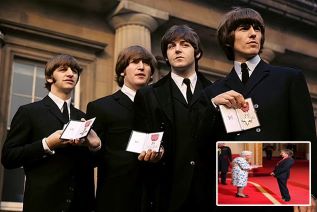Pekan Kondom Nasional, Bus Kampanyenya Distop oleh Kemenkes
Condom Campaign Bus Stopped by Health Ministry
Reporter : Gusmiati Waris
Editor : Cahyani Harzi
Translator : Dhelia Gani
 b.jpg)
Jakarta (B2B) - Kemenkes meminta penyelenggara untuk menghentikan kampanye Pekan Kondom Nasional menggunakan bus. Ini menyusul tingginya penolakan masyarakat terhadap program tahunan tersebut.
"Yang dihentikan hanya bus bertuliskan Pekan Kondom Nasional karena komunikasi, informasi dan edukasi ini sudah dilakukan sebelumnya," kata Dirjen Pengendalian Penyakit dan Penyehatan Lingkungan (P2PL) Tjandra Yoga Aditama di Jakarta, Rabu (4/12).
Ia menambahkan, Pekan Kondom Nasional bukan kegiatan yang diadakan oleh kemenkes. Melainkan diprakarsai dan dilaksanakan oleh perusahaan swasta DKT Indonesia. Ini merupakan distributor kondom di Indonesia dengan sepengetahuan Komisi Penanggulangan AIDS Nasional (KPAN).
"Kita telah mengadakan pertemuan dengan DKT Indonesia dan KPAN dan diperoleh penjelasan, acara Pekan Kondom Nasional merupakan kegiatan rutin yang telah dilakukan DKI Indonesia sejak 2007 dalam rangka peringatan Hari AIDS Sedunia," katanya.
Menurutnya, bus kampanye program Pekan Kondom yang ditentang sebagian masyarakat karena menampilkan gambar Duta Kondom Julia Perez dalam pose vulgar.
Bus itu hanya ada satu dan sempat berkampanye sehari. Namun, langsung ditarik karena muncul penolakan dari masyarakat yang menuding kegiatan kampanye juga disertai pembagian kondom gratis.
"Menurut laporan DKT tidak ada pembagian kondom gratis, tidak ada mobil masuk kampus perguruan tinggi di luar Jakarta. Karena mobilnya cuma satu dan di Jakarta saja," kata Tjandra.
Bus tersebut, katanya, hanya memiliki fasilitas komunikasi, informasi dan edukasi mengenai HIV/AIDS. Seperti leaflet untuk dibagikan ke masyarakat.
Sekretaris KPAN Kemal Siregar menambahkan, program edukasi mengenai HIV/AIDS yang dihentikan hanya yang sifatnya kontroversial, seperti bus. Namun program lainnya akan tetap dijalankan.
Kemal juga mengatakan memang ada ada pembagian kondom. Namun hanya kepada populasi kunci dan tidak kepada masyarakat luas. Apalagi kepada mahasiswa seperti berita yang beredar. "Bagi kondom ke masyarakat hanya di titik-titik lokasi yang berisiko tinggi," kata Kemal.
Jakarta (B2B) - Due to the controversy surrounding the operation of a bus meant for an HIV/AIDS information campaign, the Health Ministry has ordered the organizer to stop operating the bus.
"It has been stopped because the bus had "National Condom Week" written on it, about which communication, information and education has already been carried out before," the Ministrys Director General of Disease and Environment Health Control, Tjandra Yoga Aditama, said at a press conference on Wednesday (4/12).
He said that the National Condom Week was not organized by the Ministry of Health, but by a private party namely DKT Indonesia, which is one of the condom distributors operating in Indonesia under the aegis of the National AIDS Prevention Commission (KPAN).
"We have already held a meeting with DKT Indonesia and KPAN and were told that the event is a routine activity that DKT Indonesia has carried out since 2007 to mark the World AIDS Day," Tjandra stated.
The bus that was used for the communication, information and education campaign also showed a vulgar picture of local artist Julia Perez as a condom ambassador.
Tjandra pointed out that this was the only bus that had been used in the campaign and was being operated only in Jakarta.
He said the bus had only been operational for a day and was immediately withdrawn due to a public uproar about it distributing free condoms.
"According to the DKT, there has never been any distribution of free condoms, nor did the bus visit universities outside Jakarta because this was the only one such bus in operation," Tjandra said.
He reiterated that no free condoms had been distributed from the bus as it only carried HIV/AIDS communication, education and information materials, such as leaflets for distribution to the public.
Meanwhile, KPAN Secretary Kemal Siregar said this was the only controversial HIV/AIDs education program that had been stopped, while other programs were still continuing.
He admitted that free condoms had indeed been distributed but its distribution was limited to a key demographic group and not to the general public.
"Condom distribution has been done at certain locations that are considered high risk," he said.















